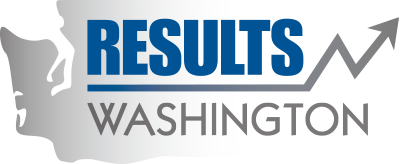Archived: Healthy weight among Native Hawaiians/Other Pacific Islanders American Indian/Alaska Natives
Adults who are at a healthy weight feel better, live longer, and are more productive at work. Extra weight puts adults at risk for serious diseases that cause early death like diabetes, heart disease, and cancer. Pregnant women who are overweight or obese are more likely to have complications during pregnancy and to have a child who is overweight or obese. We want to give everyone a chance at a long, fulfilling, and productive life. Helping adults have a healthy weight is one of the most important things we can do to achieve that.
We want to increase the percentage of adults at a healthy weight. This means not being underweight, overweight or obese. In 2013-2015 about 27.8% of Native Hawaiian/Other Pacific Islander adults, 29.7% of American Indian/Alaska Native adults, 25.5% of Black adults and 26.5% of Hispanic adults were at a healthy weight.
- Active living in communities.We partner with local public health departments to improve physical activity opportunities in communities across Washington. Approaches include creating safe walking and biking paths in neighborhoods, designing streets that encourage walking and biking, and starting programs like Safe Routes to School and walking school buses to help children walk to school.
- Food Systems Round Table. We participate in this group of agencies and organizations that is working on a long-term vision for Washington’s food system.
- Healthy food in communities.We partner with local public health departments to improve healthy eating in communities across Washington. Approaches include helping local corner stores stock healthier food and beverages and developing community gardens. Through the Supplemental Nutrition Assistance Program - Education (SNAP-Ed), we are working across the state on over 125 project sites to improve nutrition and physical activity in adults.
- Healthy nutrition guidelines for state agencies. In 2012, Washington state government employed over 94,000 full-time employees. We recently developed the Healthy Nutrition Guidelines to help state agencies increase healthier food and beverages options at work. Governor Jay Inslee ordered all Executive State Agencies to adopt policies to provide healthy food to employees and wards of the state in 2013.
- Partnering with healthcare providers.We develop resources and training for providers to promote healthy weight gain during pregnancy.
- SNAP-Ed Health Outcomes Project.SNAP-Ed is an obesity prevention program for people eligible for SNAP benefits (otherwise known as Food Stamps). This new project supports healthy weight gain during pregnancy by promoting conversations between medical providers and pregnant women and providing women's wellness classes..
- Women, Infants, and Children (WIC) Nutrition Program.WIC is a nutrition program for pregnant women, new and breastfeeding moms, and children under 5. WIC provides monthly checks for healthy food, health screenings and referrals, nutrition education, and breastfeeding support. There are over 770 WIC retailers in Washington that carry a minimum level of WIC foods, including fresh fruits and vegetables, whole grains and 1% and nonfat milk.
Pregnant women.Your health before and during pregnancy can help your child have a healthy weight at birth and throughout life.
- Find out how much weight you should gain while pregnant. Download this flier.
- Eat well during your pregnancy. Get more information on nutrition for pregnancy and breastfeeding mothers by visiting this website.
- Find out if you’re eligible for the WIC Nutrition program by calling the Family Health Hotline at 1-800-322-2588 or visiting this website..
- Consider breastfeeding your baby for at least the first six months. Babies who are breastfed are more likely to have a healthy weight. For information about breastfeeding visit this website. If you need support, call the National Breastfeeding Helpline at 1-800-994-9662.
All adults.
